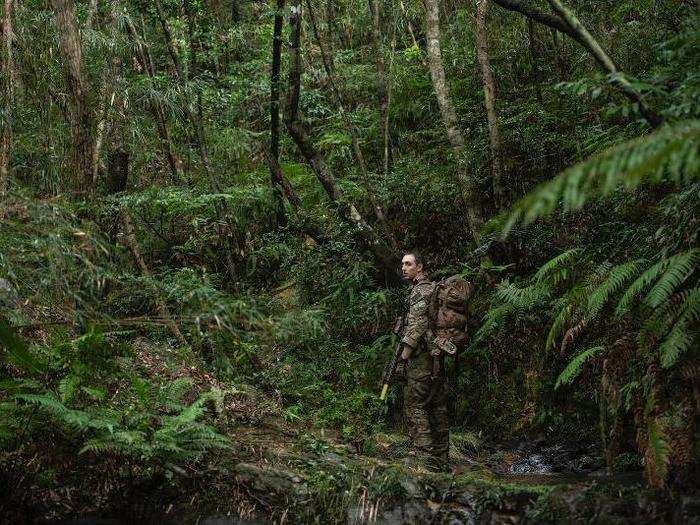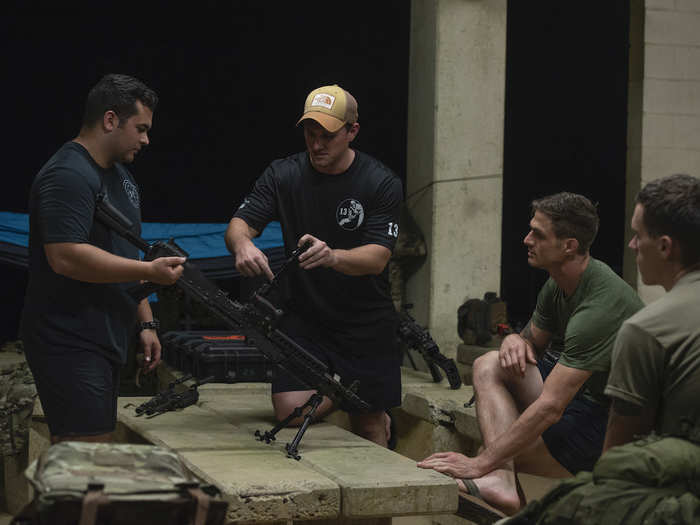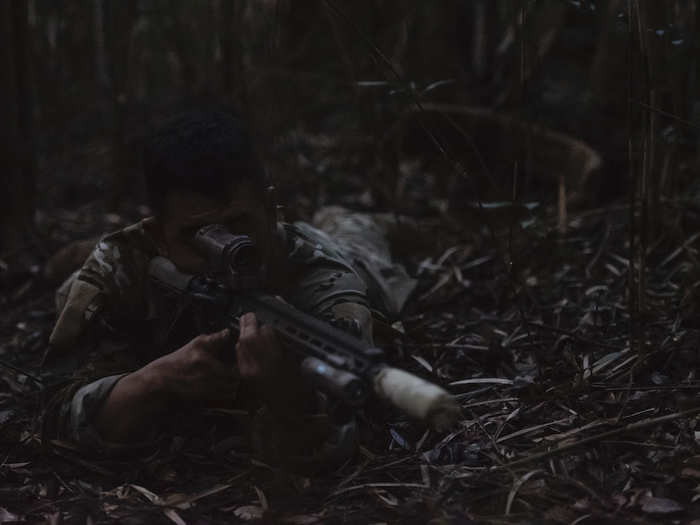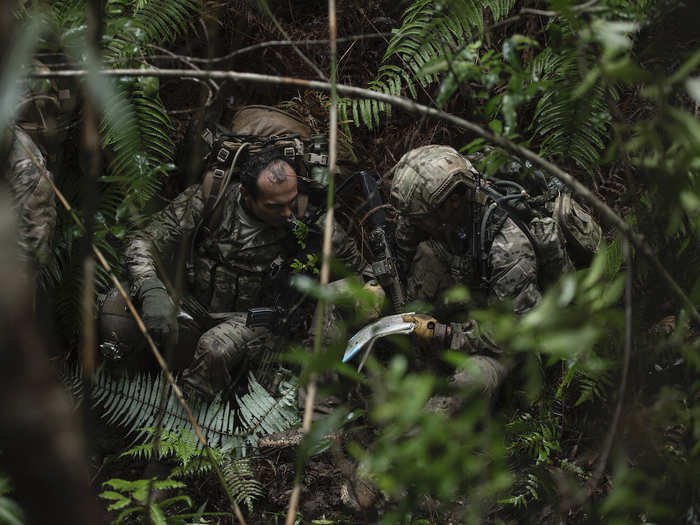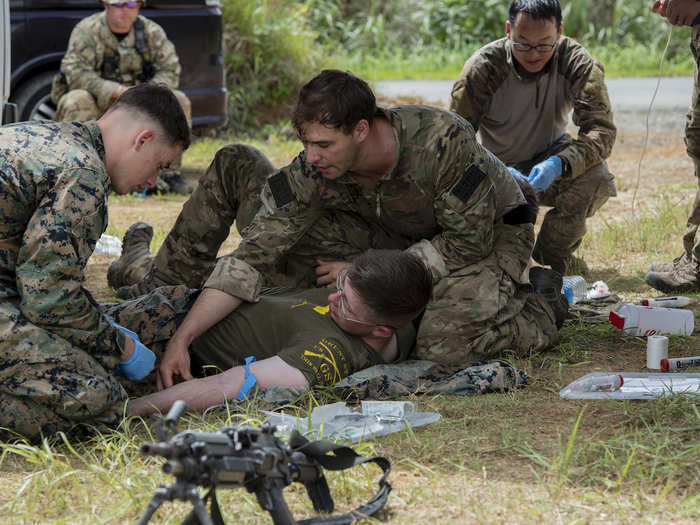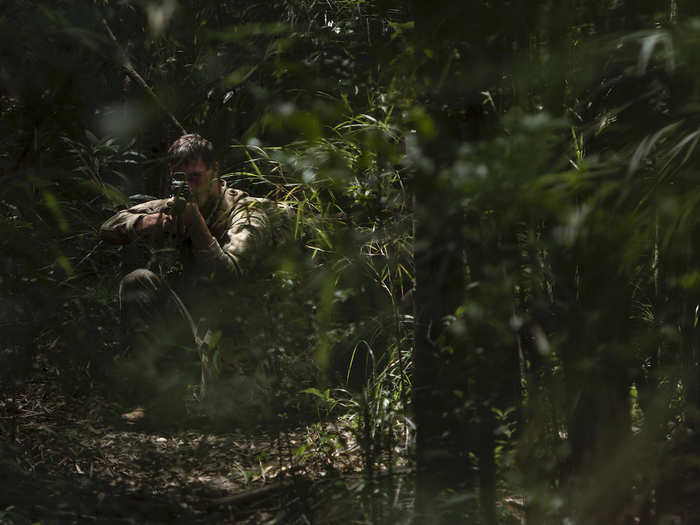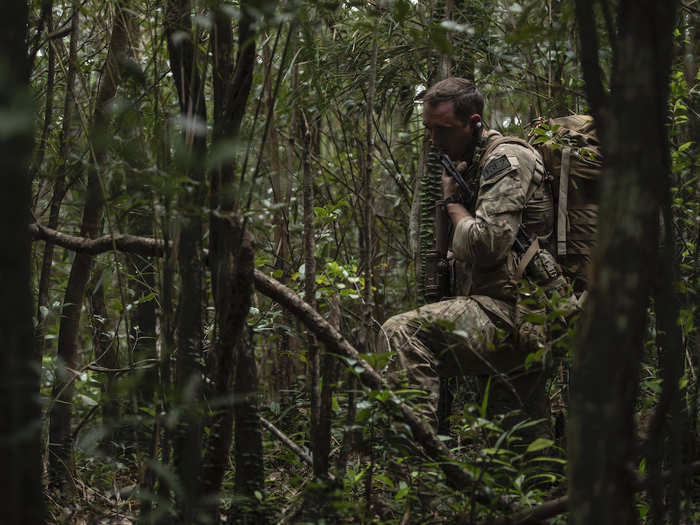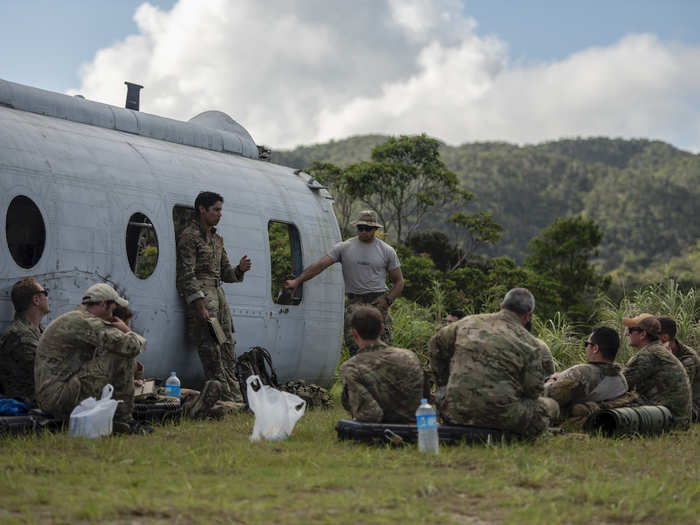This integration enabled the airmen to train in basic US Army Infantry squad and platoon tactics for the first time while simultaneously allowing the Special Forces detachment to hone its combat lethality and readiness posture for high intensity conflict against a near-peer adversary, according to a 1-1 SFG (A) command vision document.
"Small unit tactics and patient extraction training provided the skills necessary to perform the duties required in a tactical element or combat scenario," said Triana. "This training opportunity has enhanced our readiness to respond to humanitarian relief efforts and deploy to a declared theater of armed conflict."
They are capable of conducting the full spectrum of special operations to identify and target threats to US national interests.
"We deploy to countries throughout the INDOPACOM area of responsibility to bilaterally train with partner nations. This partnership enhances capabilities to combat internal threats from violent extremist organizations or other hostile actors," said a Special Forces detachment commander.
"This enables us to enhance not only our readiness and lethality to respond to a contingency or crises scenario, but also provides our foreign counterparts the skills they need to protect their sovereignty."
The Special Forces detachment is optimizing the joint training opportunities present on Okinawa, Japan. Working with adjacent military units from the Air Force, Marine Corps, and Army allows the detachment to enhance its advisory capacity and maintain readiness before deploying to a foreign country.
"Training with these airmen opens different channels in terms of capabilities, resources, and training value," said a Special Forces medical sergeant.
"For our Air Force counterparts, it provides a valuable opportunity for them to learn tactical skills they may never have been taught. For us, seeing them motivated, aggressively engaging in these drills, and advancing in their understanding of small unit tactics is valuable feedback for an instructor and adviser on our skills."
The Marine Corps JWTC further enhances the Green Berets' mission capabilities, offering a low cost, highly versatile training platform across more than 8,700 acres of heavily vegetated, mountainous terrain, according to the JWTC cadre.
"In preparation for high-intensity conflict against a near-peer adversary, our training methodology must adapt from our experiences conducting counter terrorism and counter insurgency in Iraq and Afghanistan," said the Special Forces detachment company commander.
"The opportunity to enhance our relationship with the Marine cadre at the JWTC has enabled my teams to train in the jungle, reinforcing the skills we require for this near-peer high intensity conflict."
"Every country we operate in, we enhance our partnerships and alliances with our foreign counterparts," said the SF detachment commander.
"When it comes to security, we are the preferred partner choice that shares their values and principles. The US is ready to assist them in preserving their sovereignty, and will maintain the rules-based free and open Indo-Pacific that has assured an unparalleled prosperity in the last 30 years," the commander said.

